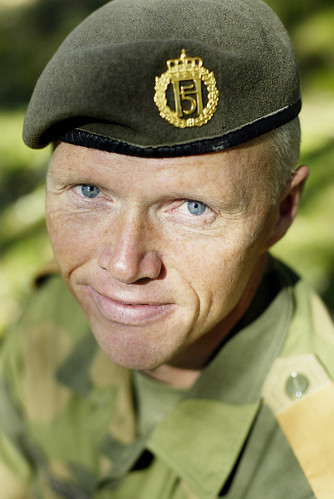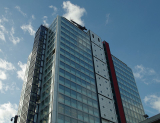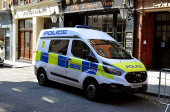
UN observers suspended their mission to Syria on Saturday, blaming intensifying violence as troops reportedly rained shells down on rebel strongholds, trapping more than 1,000 families in one city alone.
The unarmed observers have been targeted almost daily since deploying in mid-April to monitor a UN-backed but widely ignored ceasefire, and they were likened to "sitting ducks in a shooting gallery" by Susan Rice, the US envoy to the United Nations.
Explaining the decision, mission head Major General Robert Mood spoke of an escalation in fighting and of the risk to his 300-strong team, as well as the "lack of willingness" for peace by the warring parties.
"There has been an intensification of armed violence across Syria over the past 10 days," General Mood said in a statement.
"This escalation is limiting our ability to observe, verify, report as well as assist in local dialogue and stability projects -- basically impeding our ability to carry out our mandate.
"The lack of willingness by the parties to seek a peaceful transition, and the push towards advancing military positions is increasing the losses on both sides: innocent civilians, men women and children are being killed every day.
"It is also posing significant risks to our observers.
"In this high risk situation, UNSMIS (United Nations Supervision Mission in Syria) is suspending its activities," Mood said.
The observers "will not conduct patrols and will stay in their locations until further notice," he said, adding that "engagement with the parties will be restricted."
Mood said the suspension would be reviewed daily, and that "operations will resume when we see the situation fit for us to carry out our mandated activities."
As the decision was announced, a watchdog reported 31 people killed across Syria as government forces shelled rebel strongholds including Douma near the capital and the flashpoint central city of Homs.
Regime forces targeted several districts of Homs city -- including Bab Tadmur, Jourat al-Shiah, Khalidiyeh and Safsafa -- killing at least five people, said the Syrian Observatory for Human Rights.
More than 14,400 people have been killed since the uprising against President Bashar al-Assad's regime erupted in mid-March 2011, according to the Britain-based watchdog.
In the latest bloodshed, families were trapped in the Khalidiyeh, Jourat al-Shiah, Qarabees, old city and Qusour areas of Homs, an opposition stronghold, according to the Observatory's Rami Abdel Rahman.
"They have no food and no medical equipment," he told AFP.
The Observatory issued an "urgent call" to UN Secretary General Ban Ki-moon "and all those with a sense of humanity to intervene immediately, in order to put a stop to the continuous shelling."
The watchdog also called for the "evacuation and protection of dozens of injured."
"More than 100 people are injured, many of them badly, and the lack of medical equipment means some of them will die," Abdel Rahman said, adding there was also a lack of medical staff.
Home to several Free Syrian Army bastions, Homs has been under intermittent attack by regime forces ever since the Baba Amr district was relentlessly pounded for a month earlier this year, according to the Observatory, and retaken by the regime.
An escalation of violence over the past week has engulfed several areas of the country, including Homs, and France's foreign ministry said Friday it was deeply concerned at reports of "an imminent, large-scale operation" by regime forces in the city.
The Observatory reported another 31 people killed on Saturday, taking the countrywide death toll to 169 in the past three days.
It said troops shelled a rebel bastion in the Damascus northern suburb of Douma overnight, killing seven people, while also among the dead was a family of three whose house in Irbin was hit by a shell, and a soldier who died in a blast.
Three other regime troops died in clashes in rebel bastion Rastan in Homs province, while two rebel leaders were killed near a regime checkpoint in the southern province of Daraa, the Observatory said.
Anti-regime activist Abu Rawan described the shelling of Rastan as "insane."
"In addition, every car that enters or leaves the town gets shot at with heavy machinegun fire," he told AFP via Skype.
The suspension of the UN observer mission came two months into its three-month mandate, and after the United Nations accused both sides in the Syria conflict of willingly intensifying the violence.
With world powers at loggerheads over how to stem the bloodletting, Syrian ally Russia urged that pressure be increased "on both the regime and the opposition (to) make them cease fighting" and start talking peace.
The State Department said US President Barack Obama and his Russian counterpart Vladimir Putin would discuss differences over Syria at a G20 summit next week.
"Obviously disagreements persist with regard to Syria, but it will be a good opportunity for the presidents to meet and work it through," spokeswoman Victoria Nuland said.
French Foreign Minister Laurent Fabius, whose country along with the United States has been pushing for Assad to quit, said major powers could hold a Syria conference in Geneva on June 30.
AFP, photo-trackpads









































